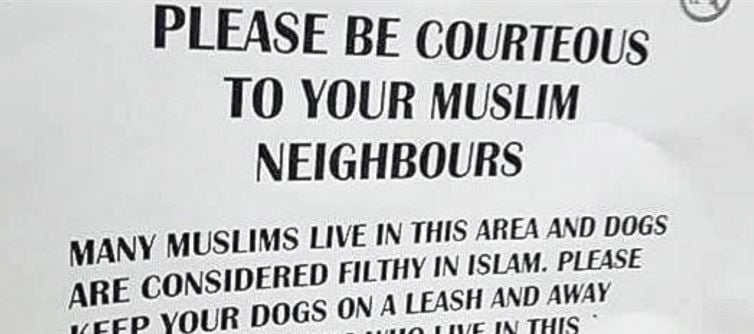
Many residents, including Muslim dog owners, have condemned the language used in the signs, calling it divisive and unrepresentative of the broader Muslim community. Islamic scholars in canada have clarified that while some interpretations of Islamic jurisprudence view dogs as ritually impure, the religion does not call for hostility or discrimination against dogs or dog owners. In fact, kindness to animals is a core principle in Islam. Community leaders have emphasized that no religion should be used to justify exclusionary or aggressive behavior in shared public spaces and that the signs misrepresent Islamic teachings.
City officials and law enforcement have reportedly begun investigating the origin of the signs to determine whether they violate any bylaws or incite hate. The incident has ignited broader discussions about coexistence, religious accommodation, and the limits of personal belief in public domains. While Vancouver prides itself on multiculturalism, incidents like these underscore the need for continued dialogue and mutual respect, especially when personal or religious beliefs intersect with civic life and communal norms.




 click and follow Indiaherald WhatsApp channel
click and follow Indiaherald WhatsApp channel